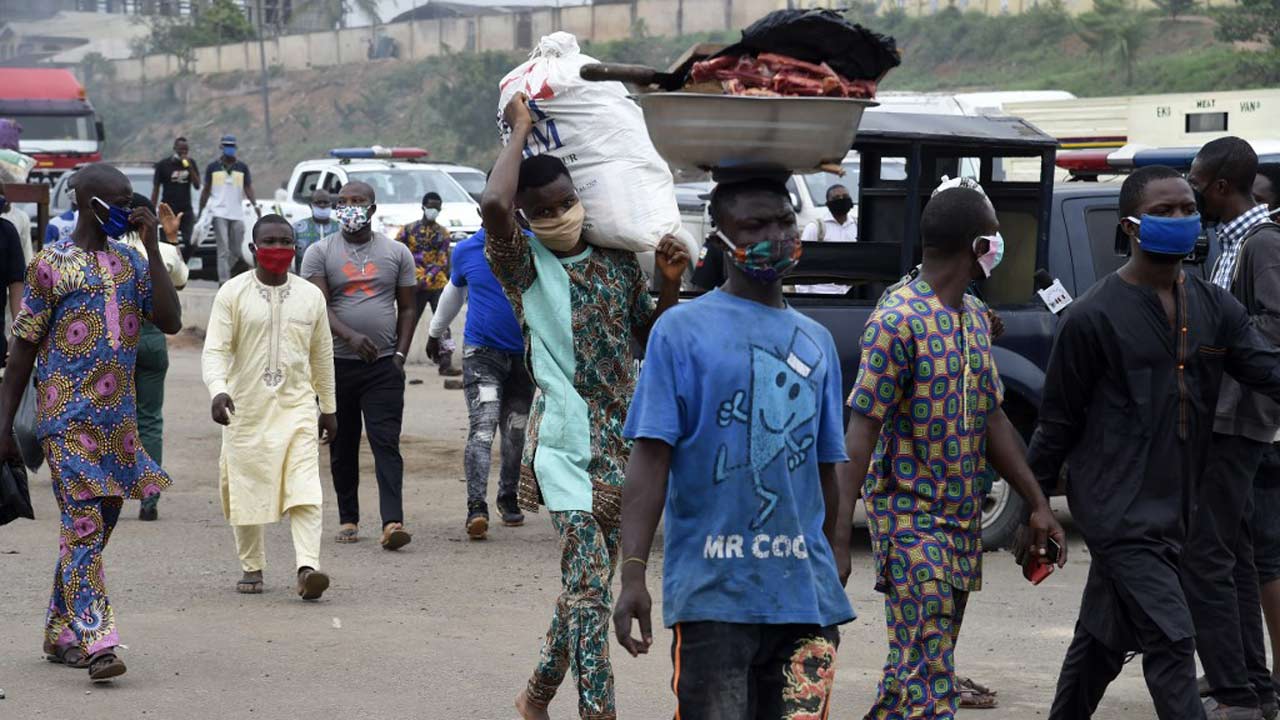
• Medical, health workers urge Nigerians to apply caution
There is fear that cases of coronavirus infection in the country may rise beyond imagination, with most Nigerians, particularly in Lagos and Abuja, seemingly taking the relaxation of the five-week lockdown to check the spread of the disease to mean the end of the pandemic.
Following the relaxation of the lockdown, residents of the Federal Capital Territory (FCT), Abuja and Lagos, the nation’s commercial capital, yesterday resumed their commercial activities in brazen disregard for the strident warning by medical experts.
Moments after the dawn of the day yesterday, Lagos revved back to life with the high human and vehicular traffic, blasting of vehicle horns by motorists, thrusting through the market spaces by buyers and sellers, and the frenetic early morning rush, all missed in the last five weeks.
Only the wearing of facemasks by some of those on the streets indicated that society is still in the age of COVID-19. All other safety precautions, including social distancing, that the federal and state governments asked the people to observe were ignored. Many simply took the ease of the lockdown to mean the end of the ravaging virus.
The fear caused by the disregard for the precautions is being reinforced by the report being released daily by the Nigeria Centre for Disease Control (NCDC) on the spread and consequences of the diseases in the country.
On Monday last week that President Muhammadu Buhari announced the ease of lockdown in a national broadcast, NCDC reported 91 new confirmed cases, which, two days after, jumped to 195 cases. This moved to 196 the next day, and on April 30, the figure had risen to 204. The trend continued on May 1 with 238 new confirmed cases, 220 on May 2 and 170 on May 3, bringing the total number of confirmed cases to 2,558, with 87 deaths and 400 discharged, as at midnight on Monday.
More worrisome was the disclosure late on Sunday that the recent mysterious mass deaths in Kano State was linked to COVID-19 by the Presidential Taskforce on COVID-19 being coordinated by Sani Gwarzo.
Similarly, the Medical and Health Workers Union of Nigeria (MHWUN) has expressed concerned that the easing of the lockdown might bring about dramatic increase in the number of new confirmed cases of Covid-19 in the country.
The union said its fear was premised on the experience of other countries where, after the lockdown was relaxed, the spread of the disease became unimaginable.
In a statement yesterday in Abuja, National President of the union, Biobelemoye Josiah, who commended the efforts of the Federal Government for the steps so far taken in the fight against the disease, called for caution and stringent measures to ensure that the decision to ease the lockdown does not take the country back to level zero where new cases will spring up to the extent that the hitherto weak, and further weakened health system and ill-motivated health workers will be overwhelmed.
He said the union received with mixed feelings the recent announcement by President Buhari to gradually ease the Covid-19 lockdown, saying that though on one hand, the relaxation would reduce the hardship being faced by the ordinary people, “Nigerians should not be insensitive at this period but must understand that Covid-19 is real and does not care about your class, status and financial background.”
MHWUN urged Nigerians to endeavour to stay safe by observing all regulations and guidelines, especially wearing of face masks in public places, frequent washing of hands and observing social/physical distancing as directed by the NCDC.



